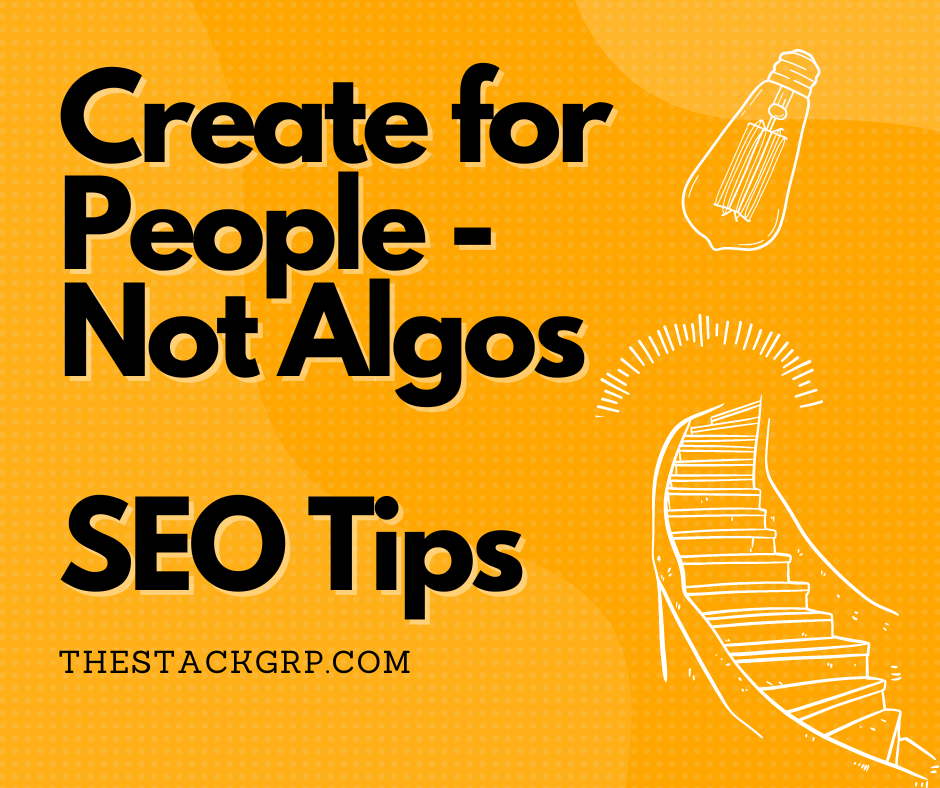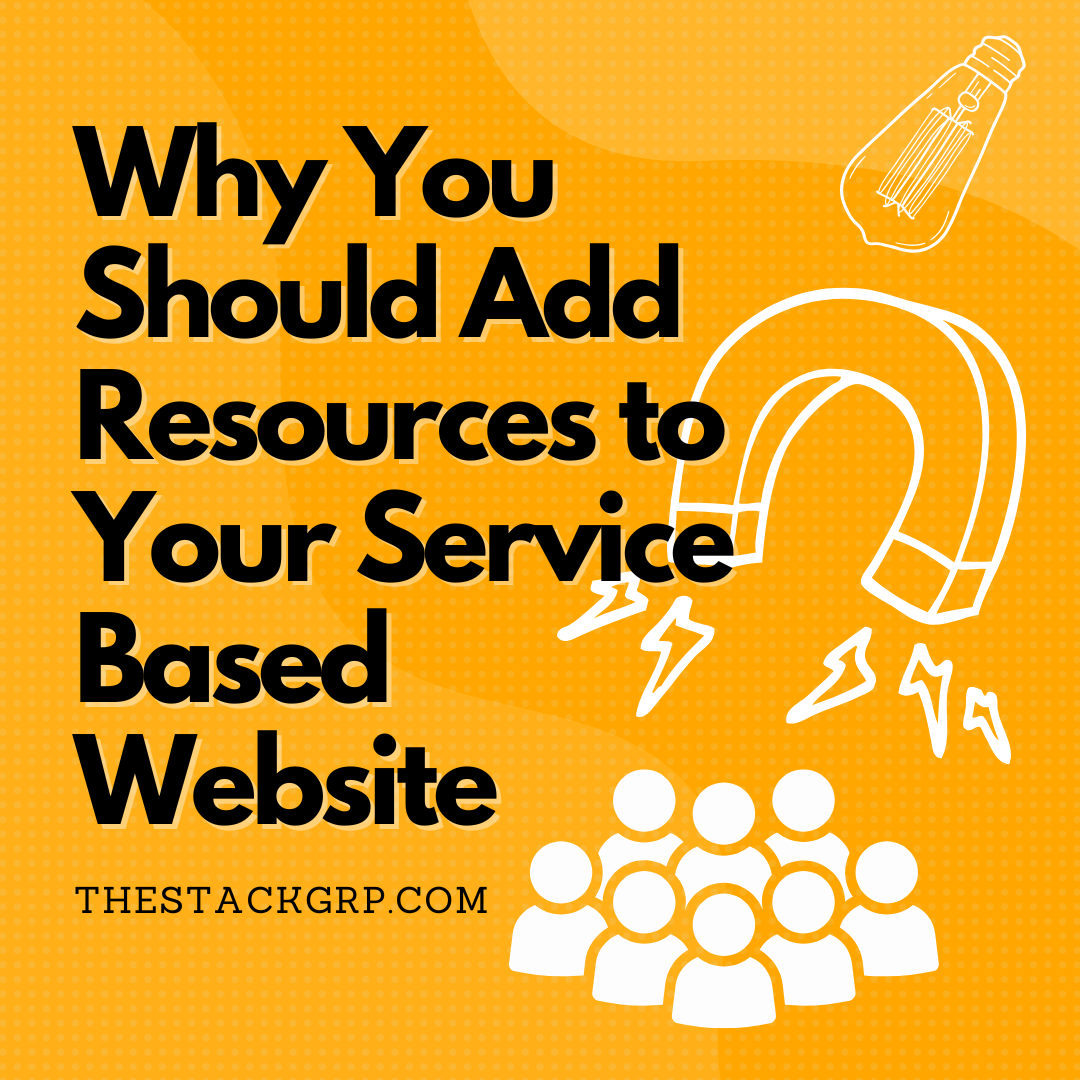Follow Us
Contact Us
Stop Chasing Algorithms Focus on Your Users for True SEO Success
The digital marketing world is full of buzzwords, trends, and quick-fix solutions. But when it comes to SEO, there's one golden rule that stands the test of time: focus on your users. In recent years, Google’s algorithm updates have consistently emphasized the importance of creating helpful, people-first content. This is perhaps even more important in the age of "AI - write me 10 articles on...". If you’re a business owner or a small business owner looking to rank higher on Google, it’s time to stop chasing algorithms and pumping unlimited content - and start focusing on and prioritizing your users.
Why User-Focused Content Matters

Creating user-focused content is not just a passing trend; it’s a cornerstone of effective SEO strategy. According to Google’s own guidelines on creating helpful content, the search engine prioritizes content that serves the informational needs of users. This means generating content that is not only genuine and original but also tailored to address the specific needs and queries of your target audience. Google’s algorithms are designed to recognize and elevate content that provides real value, ensuring that users find precisely what they are searching for. By focusing on your users, you are more likely to achieve higher engagement, retain visitors, and ultimately, improve your rankings on search engine results pages (SERPs). Emphasizing user experience creates a positive feedback loop—satisfied users are more likely to return to your site, share your content, and contribute to its credibility and authority.
Why This is Common Sense: Thinking Like a Searcher, Not Like a Computer
At its core, creating user-focused content is grounded in common sense—a notion that resonates deeply when you consider the behavior of a typical searcher. Think about how you use search engines. When you type in a query, your primary goal is to find a clear, concise, and accurate answer to your question, not to navigate through keyword-stuffed articles or clickbait. By focusing on what real people want to know, rather than attempting to game the system with algorithm-chasing strategies, you inherently create more meaningful and valuable content.
Searchers want relevance, ease of understanding, and actionable information. If your content aligns with these principles, it becomes naturally optimized for search engines. This approach is intuitive—if your content genuinely satisfies the user's intent, search engines will take notice and reward your site with higher visibility. Rather than spending time trying to outsmart algorithms, invest that energy in understanding your audience's needs, preferences, and pain points. Adopt a searcher's perspective: create content that you would find useful, engaging, and easy to navigate. This user-centric mindset not only fosters a better user experience but also aligns seamlessly with the direction search engine algorithms are heading, making it a sustainable and effective SEO strategy.
Tips for Creating User-Centric Content
Focus on E-E-A-T
Google's E-E-A-T principle stands for Experience, Expertise, Authoritativeness, and Trustworthiness. These factors are essential to creating user-focused content that also ranks well on search engines. Ensure your content showcases your knowledge and expertise, citing reputable sources and providing valuable insights and information. Prove your authoritativeness by showcasing your credentials or building a solid reputation through customer reviews and testimonials. Finally, aim for trustworthiness by ensuring accuracy, transparency, and reliability in your content.
Monitor and Analyze Performance
Use analytics tools to monitor your content’s performance. Pay attention to metrics like page views, average time on page, bounce rate, and social shares. Analyzing these metrics can help you identify what’s working and what needs improvement. You can leverage free tools like google search console, Google Analytics as well as paid tools to help you gain insights about your content’s performance. These tools can show what search queries lead users to your site, which pages are the most popular, and how long visitors stay on each page. Use this information to refine and improve your content strategy as well as get ideas for new pages / blogs you may want to develop to address your users.
Prioritize Quality over Quantity
Creating a high volume of mediocre or irrelevant content is not an effective SEO strategy. Instead, focus on producing fewer pieces of well-researched, informative, and engaging content that truly addresses the needs of your audience. Remember, quality trumps quantity when it comes to user-focused content. Yes, you can leverage AI to help speed up research, help solidify content ideas and even assist in writing pieces, but human editing is a must to ensure the highest quality possible.
The Gray Line - SEO Strategies That Still Make Sense
Yes I know - the main point of this article was to not SEO your SEO....but there are some things that can help past "just make great useful content" - so here ya go:
Keyword Research
If you're going to spend the time to develop helpful content, it's helpful to make sure people are wanting that helpful content. Google Trends, Moz, SEMrush and other platforms can help you identify the keywords that users are searching for. This can guide your content strategy and ensure that you're creating content that people are actually interested in. Essentially, if you're going to invest time to help your site visitors, make sure there are site visitors searching for that content.
Meta Descriptions and Title Tags
While user experience should be the primary focus of these elements, it's also important to use relevant keywords in your meta descriptions and title tags. These snippets appear on search engine results pages (SERPs) and can influence a user's decision to click through to your site. Keep them concise, informative, and engaging while including relevant keywords.
Internal Linking & Anchor Text
Linking to relevant pages within your site not only improves navigation and user experience, but it also helps search engine crawlers understand the context and relevance of your content. Use anchor text that accurately describes the linked page's content rather than generic phrases like "click here" or "learn more." This approach not only benefits your users but can also contribute to improving your website's overall SEO. An example would be if I found that "small business SEO services" is an area on which I want to focus helpful articles, I would link that phrase in any supporting pages or articles linking to that resource.
People not Algos
For some reason, SEOs, as well as those who want to become SEO pros, seem to forget that people are still the ones buying and still the ones searching. Trying to deploy tactics to manipulate search engine rankings may provide short-term wins, but the majority of the time, those short-term wins end up being long-term losses. Instead of trying to outsmart algorithms, focus on understanding and satisfying your audience's needs. Provide valuable and relevant information in an accessible and user-friendly format, and you'll naturally optimize your content for search engines. Keep in mind that the ultimate goal is not just ranking high on search engine results pages, but also converting visitors into loyal customers through engaging and useful content.
Questions? Have a project you're ready to launch?
Simply text our team at
(857) 256-1295 or send us a message!
Latest Articles



SERVICES
RESOURCES
ONBOARDING

